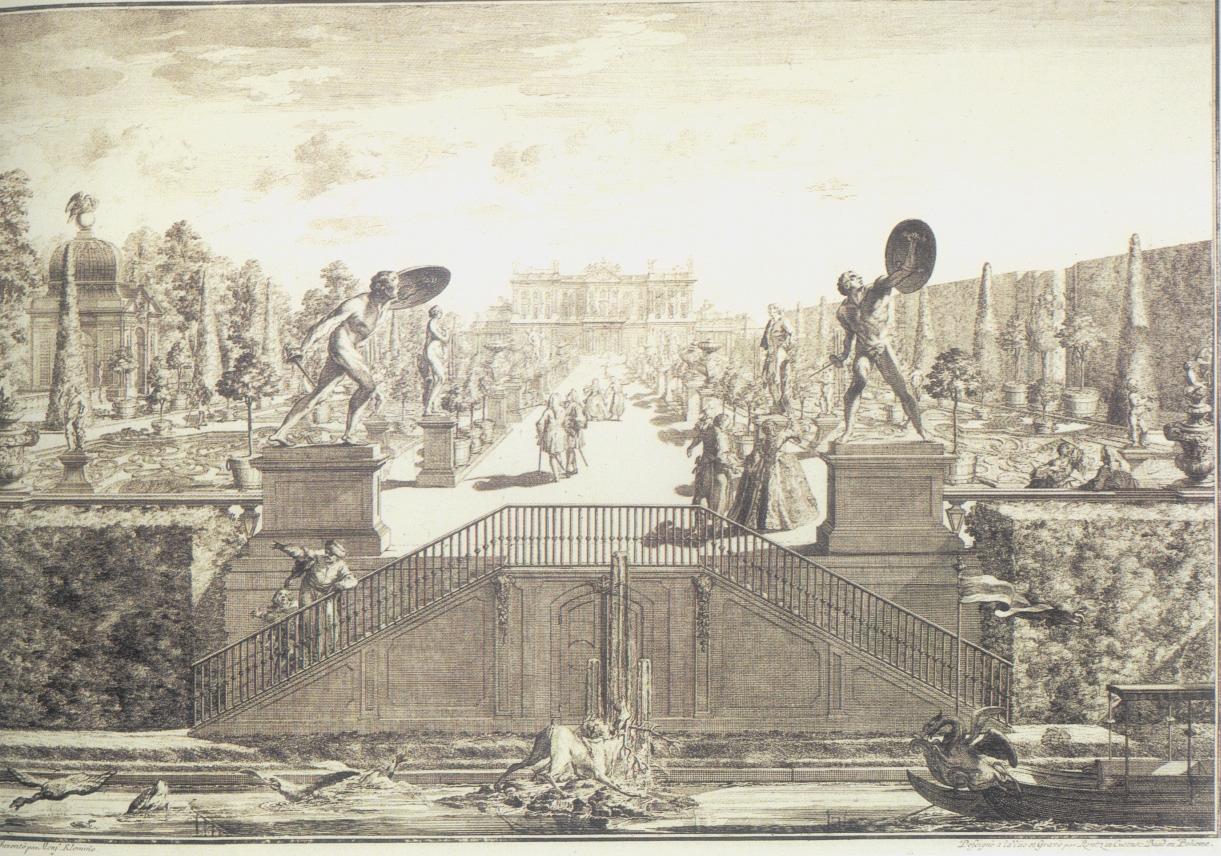|
Plurima Mortis Imago
''Plurima Mortis Imago'' is the debut album by the Polish avant-garde black metal band Devilish Impressions. The band was able to recruit Dragor to do the drums and Adrian Nefarious to play the bass guitar, both members of Luna Ad Noctum. The title is taken from the Latin poet Virgil, ''Aeneid'' 2.369. The musical arrangements were far better than their demo and they decided to record the instruments at different studios. The drums and guitars were recorded at ''Mamut Studio'' by Maciek Mularczyk and Wojtek Nowak. And all the synths and vocals at ''Hendrix Studios'', Lublin by Arek "Malta" Malczewski. A man well known for his long-time relationship with Behemoth. Al the material was mixed at the home studio of Wojtek "Flumen" Kostrzewa and mastered by the Wiesławscy brothers of ''Studio Hertz'', Białystok, all in September, 2005. Track listing # "Lunarium" - 0:57 # "Rebellion of Will Manifesto" - 6:02 # "Visions of Kingdom To Come" - 4:25 # "Dracula's Mechanized Universe" - ... [...More Info...] [...Related Items...] OR: [Wikipedia] [Google] [Baidu] |
Devilish Impressions
Devilish Impressions is a Polish avant-garde black metal band. Considered one of Poland's leading metal acts Devilish Impressions officially started in 2000 as a three-piece, with founding singer / guitarist Quazarre the only remaining original member. Squeezing a unique dimension of brutality and catchiness into their music the band keeps pushing boundaries further out with each consecutive release. Early years Marking their presence with the 45-minutes-long '' Eritis sicut Deus; Verbum Diaboli Manet in Aeternum; Vox Vespertilio Act I – Moon Var Dies Irae'', self-released in 2002, the band began the process of shaping up its own spirit. 2005 saw them recording "''Plurima Mortis Imago''", released in September 2006 on the London-based Conquer Records. The video for the songSataniChaoSymphony was shot in London and two months later Devilish Impressions hits the road along with Aeternus as part of the European "''Ageless Void Tour''". In April 2007 they land a direct support slo ... [...More Info...] [...Related Items...] OR: [Wikipedia] [Google] [Baidu] |
Maciek Mularczyk
Maciej (Polish pronunciation: ) is a Polish given name, the etymological equivalent of Matthias. Its diminutive forms are Maciek, Maciuś. Namedays according to Polish calendar: 30 January, 24 February, 14 May Maciej may refer to: Arts and entertainment * Maciej Cieślak (born 1969), Polish guitarist and songwriter * Maciej Dunal (1953–2014), Polish actor and singer * Maciej Fortuna (born 1982), Polish jazz trumpeter, composer and musical educator * Maciej Golubiewski (born 1976), Consul General at the Consulate General of the Republic of Poland in New York City * Maciej Jachowski (born 1977), Polish actor * Maciej Kozłowski (1957–2010), Polish actor * Maciej Łukaszczyk (1934–2014), Polish pianist * Maciej Maleńczuk (born 1961), Polish singer, guitarist and poet * Maciej Małecki (born 1940), Polish composer and pianist * Maciej Musiał (born 1995), Polish actor * Maciej Silski (born 1976), Polish singer * Maciej Stuhr (born 1975), Polish actor, comedian and imp ... [...More Info...] [...Related Items...] OR: [Wikipedia] [Google] [Baidu] |
Ludwig Van Beethoven
Ludwig van Beethoven (baptised 17 December 177026 March 1827) was a German composer and pianist. Beethoven remains one of the most admired composers in the history of Western music; his works rank amongst the most performed of the classical music repertoire and span the transition from the Classical period to the Romantic era in classical music. His career has conventionally been divided into early, middle, and late periods. His early period, during which he forged his craft, is typically considered to have lasted until 1802. From 1802 to around 1812, his middle period showed an individual development from the styles of Joseph Haydn and Wolfgang Amadeus Mozart, and is sometimes characterized as heroic. During this time, he began to grow increasingly deaf. In his late period, from 1812 to 1827, he extended his innovations in musical form and expression. Beethoven was born in Bonn. His musical talent was obvious at an early age. He was initially harshly and intensively tau ... [...More Info...] [...Related Items...] OR: [Wikipedia] [Google] [Baidu] |
Białystok
Białystok is the largest city in northeastern Poland and the capital of the Podlaskie Voivodeship. It is the tenth-largest city in Poland, second in terms of population density, and thirteenth in area. Białystok is located in the Białystok Uplands of the Podlachian Plain on the banks of the Biała River, by road northeast of Warsaw. It has historically attracted migrants from elsewhere in Poland and beyond, particularly from Central and Eastern Europe. This is facilitated by the nearby border with Belarus also being the eastern border of the European Union, as well as the Schengen Area. The city and its adjacent municipalities constitute Metropolitan Białystok. The city has a warm summer continental climate, characterized by warm summers and long frosty winters. Forests are an important part of Białystok's character and occupy around (18% of the administrative area of the city) which places it as the fifth-most forested city in Poland. The first settlers arrived in t ... [...More Info...] [...Related Items...] OR: [Wikipedia] [Google] [Baidu] |
Wojtek "Flumen" Kostrzewa
Wojciech () is a Polish name, equivalent to Czech Vojtěch , Slovak Vojtech, and German Woitke. The name is formed from two components in archaic Polish: * ''wój'' (Slavic: ''voj''), a root pertaining to war. It also forms words like ''wojownik'' ("warrior") and ''wojna'' ("war"). * ''ciech'' (from an earlier form, ''tech''), meaning "joy". The resulting combination means "he who enjoys war" or "joyous warrior". Its Polish diminutive forms include ''Wojtek'' , ''Wojtuś'' , ''Wojtas'', ''Wojcio'', ''Wojteczek'', ''Wojcieszek'', ''Wojtaszka'', ''Wojtaszek'', ''Wojan'' (noted already in 1136), ''Wojko'', and variants noted as early as 1400, including ''Woytko'', ''Woythko'', and ''Voytko''. The feminine form is Wojciecha (). Related names in South Slavic languages include ''Vojko'', ''Vojislav'', and ''Vojteh''. The name has been rendered into German in several different variations, including: ''Woitke'', ''Witke'', ''Voitke'', ''Voytke'', ''Woytke'', ''Vogtke'', ''Woytegk'', ... [...More Info...] [...Related Items...] OR: [Wikipedia] [Google] [Baidu] |
Arek "Malta" Malczewski
Arek is a given name for males. Arek may also refer to: * Arek, is a deity character in the Lufia ''Lufia'', known as in Japan, was a series of role-playing video games developed by Neverland (company), Neverland (aside from ''The Ruins of Lore'', which was developed by Atelier Double). In Japan, the games were originally published by Tait ... series II of console role-playing game * ''Arek'' Monthly, an Armenian Egyptian periodical in Arabic {{disambig ... [...More Info...] [...Related Items...] OR: [Wikipedia] [Google] [Baidu] |
Lublin
Lublin is the ninth-largest city in Poland and the second-largest city of historical Lesser Poland. It is the capital and the center of Lublin Voivodeship with a population of 336,339 (December 2021). Lublin is the largest Polish city east of the Vistula River and is about to the southeast of Warsaw by road. One of the events that greatly contributed to the city's development was the Polish-Lithuanian Union of Krewo in 1385. Lublin thrived as a centre of trade and commerce due to its strategic location on the route between Vilnius and Kraków; the inhabitants had the privilege of free trade in the Grand Duchy of Lithuania. The Lublin Parliament session of 1569 led to the creation of a real union between the Crown of the Kingdom of Poland and the Grand Duchy of Lithuania, thus creating the Polish–Lithuanian Commonwealth. Lublin witnessed the early stages of Reformation in the 16th century. A Calvinist congregation was founded and groups of radical Arians appeared in the city ... [...More Info...] [...Related Items...] OR: [Wikipedia] [Google] [Baidu] |
Wojtek Nowak
Wojciech () is a Polish name, equivalent to Czech Vojtěch , Slovak Vojtech, and German Woitke. The name is formed from two components in archaic Polish: * ''wój'' (Slavic: ''voj''), a root pertaining to war. It also forms words like ''wojownik'' ("warrior") and ''wojna'' ("war"). * ''ciech'' (from an earlier form, ''tech''), meaning "joy". The resulting combination means "he who enjoys war" or "joyous warrior". Its Polish diminutive forms include ''Wojtek'' , ''Wojtuś'' , ''Wojtas'', ''Wojcio'', ''Wojteczek'', ''Wojcieszek'', ''Wojtaszka'', ''Wojtaszek'', ''Wojan'' (noted already in 1136), ''Wojko'', and variants noted as early as 1400, including ''Woytko'', ''Woythko'', and ''Voytko''. The feminine form is Wojciecha (). Related names in South Slavic languages include ''Vojko'', ''Vojislav'', and ''Vojteh''. The name has been rendered into German in several different variations, including: ''Woitke'', ''Witke'', ''Voitke'', ''Voytke'', ''Woytke'', ''Vogtke'', ''Woytegk'', ... [...More Info...] [...Related Items...] OR: [Wikipedia] [Google] [Baidu] |
Aeneid
The ''Aeneid'' ( ; la, Aenē̆is or ) is a Latin Epic poetry, epic poem, written by Virgil between 29 and 19 BC, that tells the legendary story of Aeneas, a Troy, Trojan who fled the Trojan_War#Sack_of_Troy, fall of Troy and travelled to Italy, where he became the ancestor of the Ancient Rome, Romans. It comprises 9,896 lines in dactylic hexameter. The first six of the poem's twelve books tell the story of Aeneas' wanderings from Troy to Italy, and the poem's second half tells of the Trojans' ultimately victorious war upon the Latins (Italic tribe), Latins, under whose name Aeneas and his Trojan followers are destined to be subsumed. The hero Aeneas was already known to Greco-Roman legend and myth, having been a character in the ''Iliad''. Virgil took the disconnected tales of Aeneas' wanderings, his vague association with the foundation of Ancient Rome, Rome and his description as a personage of no fixed characteristics other than a scrupulous ''pietas'', and fashioned th ... [...More Info...] [...Related Items...] OR: [Wikipedia] [Google] [Baidu] |
Black Metal
Black metal is an extreme metal, extreme subgenre of heavy metal music. Common traits include Tempo#Beats per minute, fast tempos, a Screaming (music)#Black metal, shrieking vocal style, heavily distorted Electric guitar, guitars played with tremolo picking, raw (Lo-fi music, lo-fi) recording, unconventional song structures, and an emphasis on atmosphere. Artists often appear in corpse paint and adopt pseudonyms. During the 1980s, several thrash metal and death metal bands formed a prototype for black metal. This "first wave" included bands such as Venom (band), Venom, Bathory (band), Bathory, Mercyful Fate, Hellhammer and Celtic Frost. A second wave arose in the early 1990s, spearheaded by Norwegian bands such as Mayhem (band), Mayhem, Darkthrone, Burzum, Immortal (band), Immortal, Emperor (band), Emperor, Satyricon (band), Satyricon and Gorgoroth. The early Norwegian black metal scene developed the style of their forebears into a distinct genre. Norwegian-inspired black metal ... [...More Info...] [...Related Items...] OR: [Wikipedia] [Google] [Baidu] |
Virgil
Publius Vergilius Maro (; traditional dates 15 October 7021 September 19 BC), usually called Virgil or Vergil ( ) in English, was an ancient Roman poet of the Augustan period. He composed three of the most famous poems in Latin literature: the ''Eclogues'' (or ''Bucolics''), the ''Georgics'', and the epic ''Aeneid''. A number of minor poems, collected in the ''Appendix Vergiliana'', were attributed to him in ancient times, but modern scholars consider his authorship of these poems as dubious. Virgil's work has had wide and deep influence on Western literature, most notably Dante's ''Divine Comedy'', in which Virgil appears as the author's guide through Hell and Purgatory. Virgil has been traditionally ranked as one of Rome's greatest poets. His ''Aeneid'' is also considered a national epic of ancient Rome, a title held since composition. Life and works Birth and biographical tradition Virgil's biographical tradition is thought to depend on a lost biography by the Roman ... [...More Info...] [...Related Items...] OR: [Wikipedia] [Google] [Baidu] |




